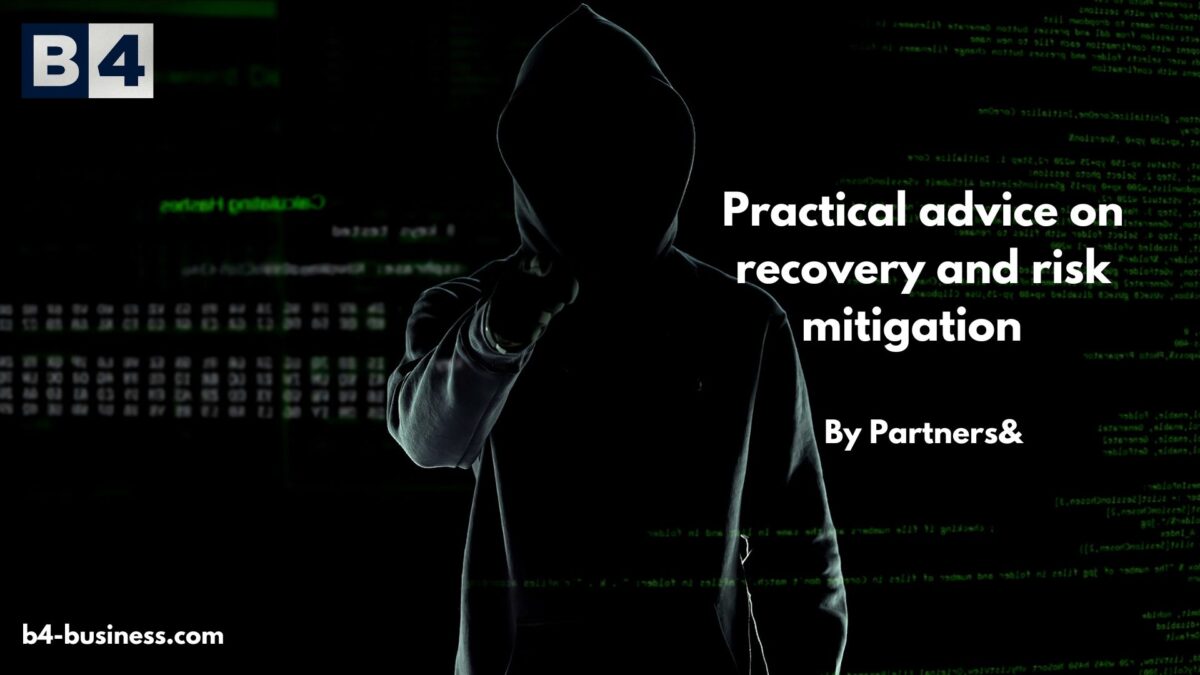
Practical advice on recovery and risk mitigation from Partners&
The recent glitch in CrowdStrike’s Falcon Sensor software update (which is designed to protect Microsoft Windows devices from malicious attacks) led to global IT chaos that’s still being felt today.
Although this was not the result of a cyber-attack, the ongoing situation will lead to a rise in the number of phishing and malicious emails from bad actors posing as CrowdStrike, Microsoft, and other vendors, offering fixes and system support.
IT Security firms have already received reports of phishing attacks targeting CrowdStrike customers, where bad actors claim to be from CrowdStrike Support. CrowdStrike has stated that they will not send unsolicited email communications.
We advise you to stay vigilant when evaluating any communication you receive regarding this issue:
- Do not download any updates or patches from unsolicited emails or messages
- Verify the authenticity of any communication by directly contacting the source through official channels
- Report any suspicious emails or messages to your support team immediately
What to do if your business has been disrupted by the CrowdStrike issue
The extent of the outage serves as a vivid reminder of just how interconnected and dependent we have become on computing technology. Airlines, hospitals and millions of personal computers across the planet have been affected and the disruption will inevitably lead to claims and litigation in the future.
For guidance on how to resolve the technical issues, refer to:
https://www.crowdstrike.com/falcon-content-update-remediation-and-guidance-hub
https://blogs.microsoft.com/blog/2024/07/20/helping-our-customers-through-the-crowdstrike-outage
Does my cyber insurance policy cover this?
Many businesses and organisations will be incurring significant costs as a result of this event, such as the additional expense of hiring IT people to install updates, lost productivity as employees stand idle, perhaps even cancelled orders.
Cyber insurance is primarily designed to provide protection and support in the event of a cyber-attack (hacking, virus, ransomware, etc.) As noted earlier, this event was not a cyber-attack, but rather a software glitch or error. On the face of it therefore, you might expect cyber insurers to have dodged a bullet with this one.
However, some cyber insurance policies contain clauses that provide cover for business interruption loss resulting from computer “systems failure”. That is to say, unexpected computer systems disruption due to a cause other than a cyber-attack.
No two cyber policies are the same and not all policies provide this cover. Terms, conditions and exclusions may apply to, exclude or limit payment of any claim.
If you want to know what your cyber insurance covers, reach out to your usual Partners& adviser who will be pleased to provide further advice.
And if you’re not yet a Partners& client, we’d more than happy to help you review the cyber insurance cover you have in place.
Move quickly, as delays in notifying insurers could prejudice any claim you may wish to make.
Matthew Clark, Cyber Director
With thanks to Cowbell Insurance for contributing to this article.
More in Finance & Insurance

Nine in ten businesses think sustainability will impact their future operations,...
Virgin Money launch new Mobiliser Fund to help support the transition

5 reasons why insurance claims don’t get paid
Insurance. You rely on it to protect you, your business and your family when something goes wrong.

B4 Finance Ecosystem: The specific opportunities and challenges that women encounter...
Charles Stanley are committed to fostering a proactive approach to investing and their goal is to empower women to make well-informed financial decisions and capitalise on potential growth opportunities. They also strive to support women in crafting their unique financial narratives, enhancing their knowledge, and understanding of investment strategies, and building a robust and influential female network.
From this author

5 reasons why insurance claims don’t get paid
Insurance. You rely on it to protect you, your business and your family when something goes wrong.

Let’s talk Women’s Health
Today, we have over 16 million women in the UK workforce, with 70% of working women being aged 50-64. Article by Partners&.

Four reasons why you should consider an employee discount scheme
People across the UK are currently facing new financial concerns as the cost of living continues to increase. A recent study revealed that four in ten UK employees listed money as their biggest worry, and 65% of respondents would like more financial support from their employers.


